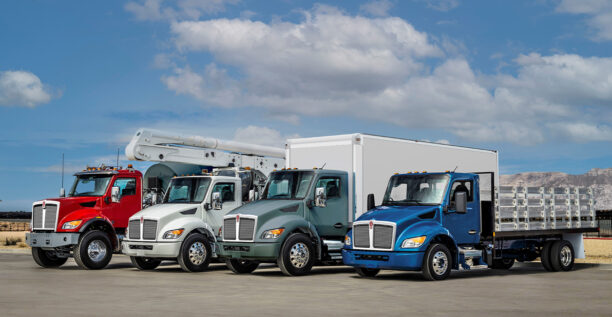Propane’s Impact on Medium-Duty Vehicles

For decades, fleet owners have strategically turned to propane as a pivotal energy solution, reshaping operational efficiency and environmental responsibility while meeting the diverse demands of duty cycles. This transformation is especially pronounced in the medium-duty (Class 3-7) sector, encompassing industries such as package delivery, food and beverage transportation, paratransit, and student transit. Let’s explore the broader reasons why propane has become the preferred choice for fleet owners in this dynamic sector.
Environmental Sustainability
Medium-duty vehicles powered by propane significantly contribute to environmental sustainability. With lower emissions of greenhouse gases, smog-producing hydrocarbons, and particulate matter compared to conventional fuels, propane engines have reached an impressive 90% reduction in pollutants, surpassing stringent EPA standards.
Economic Advantages
The escalating costs of diesel have been a driving force behind the adoption of propane by fleet owners. Propane, with its 50% lower cost per gallon compared to diesel, presents a compelling economic advantage. Fleet owners across the nation are witnessing substantial savings, contributing to a more cost-effective and sustainable operational model.
Strategic Infrastructure Investment
An integral part of the propane transition involves investing in on-site refueling infrastructure. Fleet owners are collaborating with propane suppliers to establish these strategic refueling points, ensuring vehicles can complete their routes and refuel conveniently. This move eliminates wait times and additional costs associated with public diesel stations.
Driver Satisfaction and Performance
The positive feedback from drivers operating propane vehicles underscores the satisfaction derived from their power and torque similarity to diesel engines. Negotiating challenging terrains becomes more reliable and efficient. Propane vehicles exhibit consistent starting performance even in freezing winter temperatures, alleviating concerns that drivers often face with traditional fuels.
Expansion Strategies
Driven by the remarkable benefits observed in existing propane-powered vehicles, fleet owners are contemplating expansion plans. The cost savings generated from current propane vehicles become a strategic resource, facilitating the addition of more propane-powered vehicles to the fleet. This expansion aligns with the continued commitment to the advantages offered by propane, emphasizing its role in shaping the future of medium-duty vehicle fleets.













